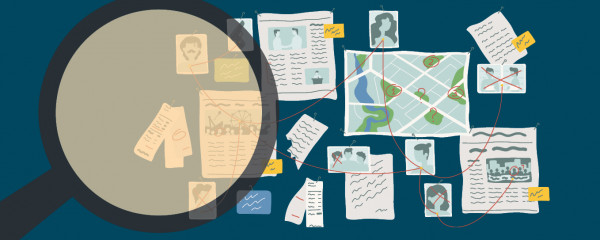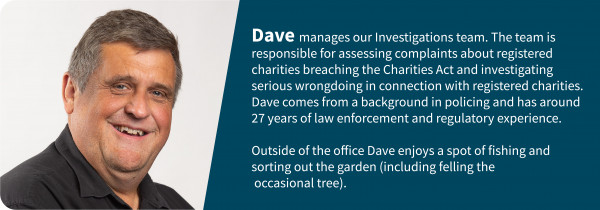How does Charities Services handle complaints?
Published 14 April 2021
[![]() 3 minutes to read]
3 minutes to read]

We receive around 200 complaints about registered charities every year, and we treat every one of them seriously and confidentially. We thought you might like to know a bit about what happens when we receive a complaint and how it could lead to us investigating a charity.
Not every complaint results in an investigation.
When a complaint is raised with us, it needs to be related to the legal obligations of registered charities under the Charities Act 2005 (the Act).
New Zealand’s charitable sector is large and diverse with almost 28,000 registered charities, so the bulk of our focus is on issues that can cause significant harm to public trust and confidence in charities. These are things like serious wrongdoing or deliberate breaches of the Act.
A full investigation isn’t always the right approach. When we receive complaints that are less serious in nature or fall outside our regulatory mandate, we focus on education. For example, if a charity is struggling to follow their rules or comply with reporting, we can offer support and resources. This may also happen when we come across internal disputes. We don’t often investigate these issues. We’re more likely to support them with information and resources, so they can resolve the situation themselves(external link).
Where suitable, we may also pass complaints onto the right government agency to deal with. The types of complaints we may refer to other agencies include allegations of criminal activities, employment disputes and health and safety issues. You can read more about the kind of complaints we investigate and don’t investigate on our complaints page(external link).
When a complaint leads to an investigation
If our initial inquiry into a complaint uncovers evidence of serious wrongdoing, we can start investigating a charity.
Serious wrongdoing is defined in the Act, and is divided into a few different types:
- unlawful or corrupt use of funds or resources;
- actions that constitute a serious risk to the public interest;
- actions that constitute an offence;
- actions that are oppressive, improperly discriminatory, or grossly negligent, or that constitutes gross mismanagement.
Once an investigation begins, we look at the evidence, and pull a case together. Depending on the seriousness and risk of the issues, there are a few different powers that we and Te Rātā Atawhai (the independent Charities Registration Board)(external link) can exercise. These include:
- formal letters of expectation;
- warnings;
- monitoring;
- deregistration;
Where we have the legal power to act, we will always assess the nature of the complaint and its level of risk to inform the outcome.
You can find out more about our complaints process by reading our compliance approach(external link).
Our website has more information about making a complaint(external link). Before you get in touch, we recommend you have a look. If you have any questions, don’t hesitate to ask info@charities.govt.nz.



